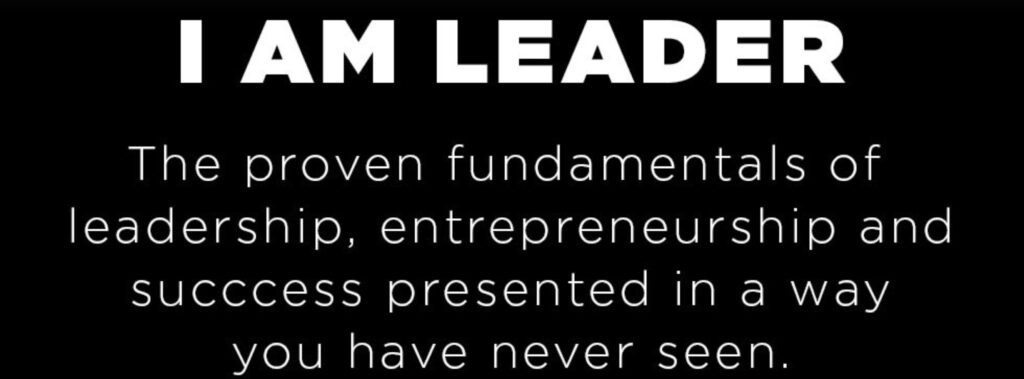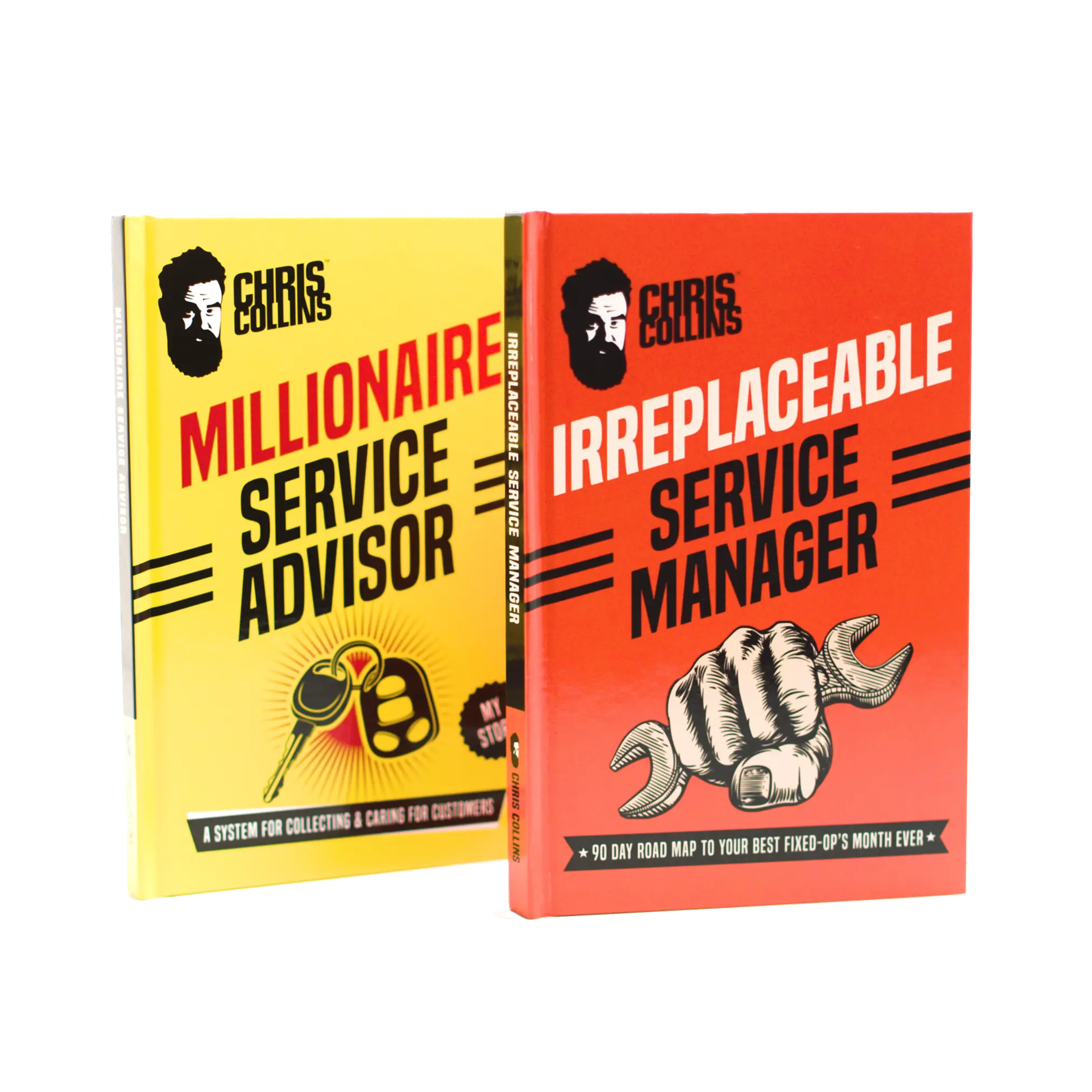Nothing’s more contagious and endearing and fun than humor. Nothing bonds you with somebody as easily as humor. Nothing will improve your customer service as significantly as humor. Even just seeing somebody laugh or smile makes you want to do the same. There’s research that shows that we, as humans, have neurons in our brains that mirror certain behavior, and laughing and smiling are the two biggest ones. It’s more contagious than any coronavirus will ever be, and nothing pulls somebody in more than being able to make them laugh; it’s the easiest way to endear customers and build trust!
We have an exciting show for you today with a special guest to talk about how to improve our customer service and connect with customers using humor. Andrew Tarvin is a returning guest, spoke at our Top Dog event, and we’ve had him on some coaching meetings. One of the highlights we’ve had during COVID though was Andrew having all of our coaches doing stand-up for the whole company via Zoom, which is unbelievable that he pulled that out of everybody because some of our coaches are more introverted – if you remember that from when I talked about how personality tests don’t work.
How he was able to do that was by creating a framework that they filled in and he tweaked a little bit in the end. Our group of coaches in particular were so willing to try something different that they latched onto it, and it’s that kind of willingness and eagerness that gives somebody the confidence to rock it.
He’s also worked with Christian on the side, and I’m sure if it wasn’t for COVID, Christian would be doing stand up right now. The one thing he got from working with Andrew is that it’s always a work-in-progress every time you get an opportunity to throw out a little bit of a set or you get feedback from people on what material is funny and what’s not. The cool thing is how much of an ongoing process it is, and you’ve got to start somewhere.
Like many other things, building a good stand-up routine is its own system, and it’s incredible how easy things are once you understand a system. I was telling Christian the other day this story I have for ownership because I’m always blown away by Jocko’s story in his book, Extreme Ownership.
He has a story in there about how, to be a leader, you have to own every aspect of the result. Basically, you walk away from the first couple chapters of his book just going, “Man, I’m a wimp!” It’s like life and death in the Navy Seals, and they’re out their putting their lives on the line while business for us doesn’t get us killed if we mess it up. We might be broke – homeless, maybe – but we’re not going to die. We get another shot at it, right?
So anyways, by owning up to the results, you get better at a skill by doing it, just like riding a bike, or writing, or customer service. You improve your skill through repetition, and it gets even easier when you have the right framework or structure. It doesn’t take away from the creative process, it makes it better. You’re always going to tweak and evolve the format, but it at least gives you a place to start from.
Andrew describes it as the nerd or engineer inside him. He loves taking things apart. If we can take a clock apart or a computer apart, can we do the same with umor? Can we parse it and see what works and what doesn’t? Why does it work, or why doesn’t it, etc? It’s like a math problem; comedy is like math but with words.
That’s also our job as teachers. We take the complicated and make it simple for people to be able to understand and then apply it. My biggest takeaway with Andrew’s work is that it all starts with the way you look at and pay attention to things. One of the things that he teaches is that humor is in the way you look at it, and you start to see things you wouldn’t have seen before you learned what to pay attention to. It just got easier because I looked at things a different way.
Sense of humor is tied to perspective. It’s made up of all the things that you find interesting. For some people, it’s watching videos and stuff. One of the things Andrew does is he joins a Zoom call and plays a game of what’s in a person’s background. He looks at somebody’s chair and wonders how smooth it must be to sit in, or what could be the best book on somebody’s shelf, etc. That’s where it all starts: what’s interesting to you? What are you curious about? What makes you go, “Huh?” All of these will help you develop a sense of humor that you can apply to your customer service interactions.
Look at stand-up comedians. Eddie Izzard’s sense of humor is really different from Chris Rock, which is different from Dave Chappelle, which is different from Ali Wong. They all have their specific take or view on the world.
It changes the way you look at things; it enriches you, and you start paying attention more. There’s also a line between being naturally funny and being good at stand-up. I was watching this HBO special called Talking Funny with Louis C.K., Chris Rock, maybe Seinfeld, and they were talking about how they have friends that when they’re hanging out playing poker or whatever, they’ll have them in stitches, but when they step up in front of a microphone, they’re not funny anymore. It’s a different art to be able to do it in front of an audience and bend a room compared to just being funny. With Andrew’s help, I’ve seen that kind of evolution in Christian where he was naturally funny before, but now he can apply it and do it reactively. He can apply it to stories and to lessons, and I think it’s awesome. It’s fun to watch.
It’s also great to recognize that you don’t have to be a standup comedian to be funny. You don’t need to do standup to use humor to build better relationships with clients, but you can learn if you want to because it can help make your conversational skills even a little stronger. There’s a difference between conversational humor and presentational humor and what you do in a comedy club vs. what you would do in an office setting, but those techniques can meld together, especially as they become second nature. When you first start to learn them, you consciously think about the comic triple and all those very specific techniques and stuff, but then as you ingrain that into your behavior and how you speak, you start to naturally speak that way!
What Christian finds really impressive about his experience in creating these systems of humor is your ability to apply it with the right situations, especially when thinking about customer service. If we’re in a service department and we’re dealing with a client, how do we use that humor to break the ice and everything? Your system identifies those opportunities to quickly respond to that. You can apply it to the business world really easily.
To put his money where his mouth is, here’s how he would do it: let’s say you’re a service advisor going up to a client that pulls their car in. It’s a minivan and it’s got like dents and dings, and there’s six kids pouring out of it. You can see that the mother is understandably stressed and the last thing in the world she wants to do is be in front of you taking care of her car and all that. In Christian’s experience as a service advisor, his thing was to figure out what to open with that would make that person immediately laugh and be okay with the six kids they have dangling from the ceiling of the minivan.
That’s when you continue setting up your system and identifying the right amount of humor to inject. Your goal in that situation is what, in comedy, you would call ‘calling the moment.’ In a comedy club, if someone drops a plate and it shatters everywhere while you’re performing, you kind of have to address that so the audience can laugh and move on, otherwise they’d be fixated on what just happened while you’re trying to continue your routine, right?
It doesn’t have to be a perfect joke, but if you can get even the server who dropped the plate to agree with the joke or maybe find it hysterical, that’s one more person put at ease. There are plenty of ways to deal with the situation. Like with that mom who pulled into the service drive with her six kids, you could be like, “Wait, only six kids? I was expecting an entire soccer team to jump out of there, but you’ve only got half the team. You’ve got a basketball team. That’s way easier to deal with. Like a basketball team, plus a sixth man? What are you, the Toronto Raptors? Who’s this coming off the bench?”
So in that situation you’re using humor to diffuse the tension of the situation with the customer. You can frame it in a positive way or focus it back on yourself as well like, “Don’t worry. This is no problem whatsoever. We had a clown car come down here one day…. 87 people inside!” So you can go that exaggerated route where it’s clearly a joke, and you still put them at ease by making them laugh a little.
What you wouldn’t want to do though is punch down. Humor can be used to build up but making fun of someone of a lower status is punching down. You obviously can’t enter a customer service scenario like that by saying, “What? Six kids in a car? Can’t afford like two cars to drive them around? Where’s your nanny to take care of this?” You don’t want to go that route where they’re going to feel bad about the situation. I would say that should be common sense, but you never know with some people.
Comedians prepare for scenarios like these all the time. They do some crowd work and immediately react to something, and you wonder, “how did they know that was going to happen?” They didn’t, but they can plan for it. As a comedian, Andrew knows that one day the microphone might go out on him, or somebody is going to drop a tray of dishes or heckle him. At some point, there’s not going to be any laughs, but you can rebound if you pre-plan for still getting a laugh out of those awkward situations.
That’s also why it’s valuable to keep a little notebook around to log what kind of scenarios could happen and what you should do just in case. I do it with the notes app in my phone. Reflection on the past also leads to action in the future (I loved this saying so much that I wrote it down). By reviewing what happened or didn’t happen, you’re better prepared to handle a situation the next time it comes up. When you see humor out in the world, you can also incorporate it into your work, and it can become a lesson. It can be a kind of humor inspiration for breaking up the day.
One thing I noticed about keeping that little log in your phone is that I was only putting in the things that actually got a laugh, so then it does subconsciously train your mind to what works. Paying attention to what works then trains you to do more of it, so you get better at it.
Some people think, “I’ve made people laugh. I could probably do stand up,” but a big majority of people think they could never do that. Some of the more introverted coaches on the team had the mentality that they weren’t going to do well at it, but the reality is that humor is a human trait. Everybody has made someone laugh one way or another, for better or worse. Maybe not intentionally, but everybody has some sort of sense of humor. Everybody has that perspective. So when you have that notebook, you start to recognize that maybe you do have the ability to make people laugh more than you thought. Then, you start to wonder how you can take that ability and just amplify it a little bit more.
I would tell everybody one of the best investments you could make is to hire Andrew. He’d do an hour a week where he coaches, and then at the end of the month, there would be a presentation. His website is humorthatworks.com. It will not only add humor to your business, it will help your team, your salespeople, your advisors, whatever it is, to think of things more as a system and understand that something that seems unattainable becomes very obtainable when you put a process to it. I can’t recommend it enough. Contact him and set up some ongoing Zoom training. He can bring New York to your business through the magic of the interwebs.
Once again, thank you to Andrew Tarvin for coming on the show. It was great having him and now it’s time to wrap up with some questions.
“Hello, my name is Chris. I work at Space Center Automotive. I was wondering if you had any literature on pay scales for service advisors and bookkeepers in particular? It’s not uncommon for advisors to gain over $100,000 in certain skills. Thank you for any information.”
Advisors make exactly what they’re worth, that’s what I would say. It’s different per market, per brand, per shop, all that, but you make exactly what you’re worth eventually.
“I have a question, is it the responsibility of a Service Advisor to inform their customers of any or all warranty issues that directly involves their vehicle? Is it their responsibility to let me know there is an active warranty for a part in my car that may become faulty and may shut the car down?”
These questions are terrible… I think so. Yeah, I guess. If you notice something while the car’s in warranty and you’re doing an inspection, you should tell the customer. Now, some manufacturers don’t want you to do that. They don’t want you to upsell warranty, so there’s a balance there, but for the most part, I would treat it like it’s my mom’s car. If it was my mom’s car and there was something under warranty that needed attention, I would tell her!
“Hey guys loving the podcast, started at episode one last week and have been listening every chance I can while making a hit list. My biggest issue right now is my GM doesn’t feel we need a third advisor. We write 25-28 ROs a day and are growing, I’m adding a film install bay/tech next week and replacing him with another detailer. I just interviewed and hired a new factory trained tech bringing our new shop body count to 10 (2 detail, 1 film, 6 licensed techs, 1 lube tech). We net 48% of gross, up from 42% YOY. I moved from parts manager (5yrs) to fixed manager last year we currently avg 41k net per month this year and I’m struggling to keep up with my own day to day responsibilities. I feel like my GM doesn’t trust my judgement or is expecting more water from this rock. I’m getting frustrated with a frozen pay plan and so are advisors (Covid excuse) and am struggling with the glass ceilings I keep hitting. Any ideas before I take a hammer to said ceiling? Also, can’t wait to sign up for some training once this pay freeze BS is sorted out.”
The first thing I would say is, if you want, contact us at [email protected] and schedule your general manager and yourself to do a strategy session with us. We’ll kind of go through that and make the case for why less is more and that perfecting the customer service experience will get you more per repair order, and it will help your retention. The customers will come back, which in return will help you sell more cars.
I love the specific numbers in your question. In no way does an advisor succeed writing 25 a day. There’s no way. You can’t communicate, you can’t over-deliver, and you can’t make friends with that amount of ROs per day. That’s too much day in and day out. You could do that much once in a while, but more than that wouldn’t be realistic.
The other thing I would say as a rule of thumb is three techs for every advisor so I can instantly see when there’s ten techs and two advisors that there’s obtainable increase in dollars per ticket just by adding another advisor, because you’re going to lose customers when you can’t present what is needed. Just by having that extra advisor there to answer phones is life changing and that alone will increase how many more customers you can bring in.
I hope you guys got a lot from Drew. Once again, his website is humorthatworks.com. Reach out to him. I’m telling you, it’s life changing to have him coach your team. It was for us. It was a blast. It’ll make everybody see things in a different light, and it’s just contagious for the culture of your business to have that humor. People learn more, they retain more, and they love coming to work when the environment is fun like that.
Think about some ways to inject more humor into your life and your work, and we’ll see you next time on Service Drive Revolution!










